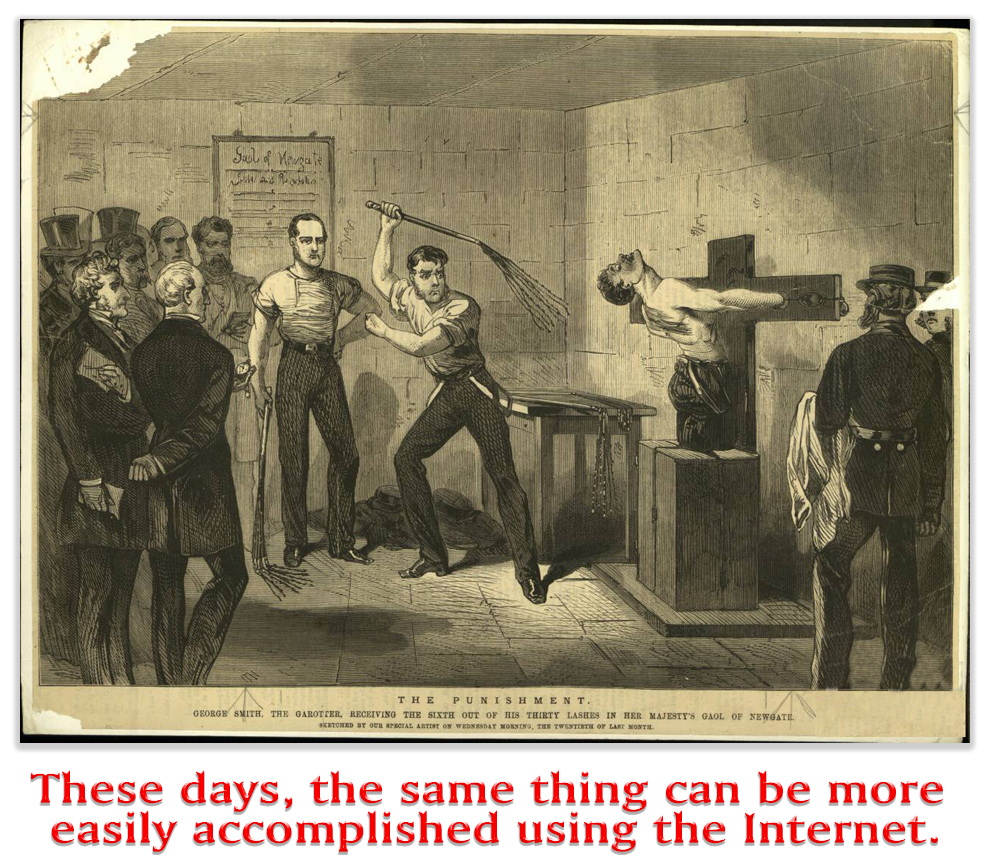We post news and comment on federal criminal justice issues, focused primarily on trial and post-conviction matters, legislative initiatives, and sentencing issues.
DISTRICT COURT HOLDS COLORADO SEX REGISTRATION VIOLATES 8TH AMENDMENT
The registration systems for ex-inmates with sex offenses is state based. Congress decreed in the Sex Offender Registration and Notification Act (SORNA) that every state would have a system, and then imposed a federal requirement on people convicted of sex offenses that they must register under penalty of law.
 The public loves state registration laws, because they like to identify and shame ex-offenders for crime committed years before, running them out of housing, hounding them out of jobs, and even trying to break up their families. Sounds like punishment? The Supreme Court said not, in Smith v. Doe, which in 2004 held that Alaska’s Sex Offender Registration Act (“SORA”) was not punitive.
The public loves state registration laws, because they like to identify and shame ex-offenders for crime committed years before, running them out of housing, hounding them out of jobs, and even trying to break up their families. Sounds like punishment? The Supreme Court said not, in Smith v. Doe, which in 2004 held that Alaska’s Sex Offender Registration Act (“SORA”) was not punitive.
For a decade since it was handed down, Smith v. Doe shut down constitutional challenges to state SORAs. In the last few years, however, federal courts have been willing to recognize that the landscape has changed.
A little more than a week ago, a Colorado district court recognized what anyone who has faced the burdens, obstacles, and dangers of life on the offenders registry already knows: the punitive impact of the state’s SORA far outweighs any value it might have in protecting the public. The district judge held that Colorado’s registration statute violates the 8th Amendment by imposing cruel and unusual punishment, and violates a registrant’s 14th Amendment procedural and substantive due process rights.
The Colorado court held that Smith v. Doe’s “words ring hollow that the state’s website does not provide the public with means to shame the offender when considering the evidence in this case.” The Supreme Court “did not foresee the development of private, commercial websites exploiting the information made available to them and the opportunities for ‘investigative journalism’ or “the ubiquitous influence of social media.”
 The district court noted that Justice Kennedy, who wrote Smith v. Doe, said in last spring’s Packingham v. North Carolina decision that “the troubling fact that the law imposes severe restrictions on persons who already have served their sentence and are no longer subject to the supervision of the criminal justice system is… not an issue before the Court.” But it was in front of the Colorado district court, which said, “the evidence demonstrates that the very real restraints on Plaintiffs’ abilities to live, work, accompany their children to school, and otherwise freely live their lives are not simply a result of the crimes they committed, but of their placement on the registry and publication of their status…” Colorado’s SORA looks “far more like retribution for past offenses” than a public safety regulation, the Court said.
The district court noted that Justice Kennedy, who wrote Smith v. Doe, said in last spring’s Packingham v. North Carolina decision that “the troubling fact that the law imposes severe restrictions on persons who already have served their sentence and are no longer subject to the supervision of the criminal justice system is… not an issue before the Court.” But it was in front of the Colorado district court, which said, “the evidence demonstrates that the very real restraints on Plaintiffs’ abilities to live, work, accompany their children to school, and otherwise freely live their lives are not simply a result of the crimes they committed, but of their placement on the registry and publication of their status…” Colorado’s SORA looks “far more like retribution for past offenses” than a public safety regulation, the Court said.
This decision joins similar court ruling in Alaska, Maine, Michigan, New Hampshire, Oklahoma, and Pennsylvania. Given the significance of SORNA and the state schemes, Supreme Court review within the next few years is probable.
Millard v. Rankin, Case No. 1:13-cv-02046 (D.Colo., Aug. 31, 2017)
– Thomas L. Root

